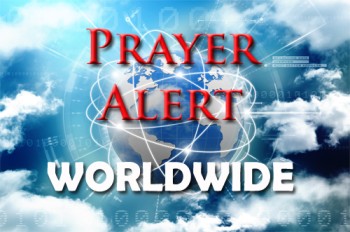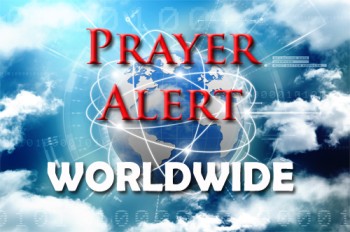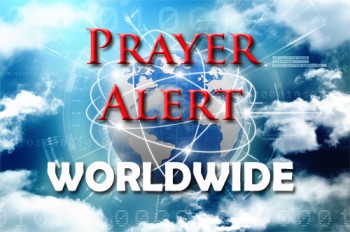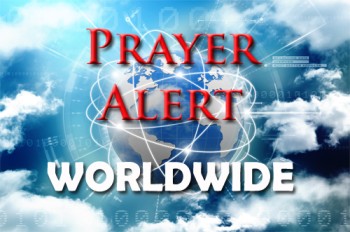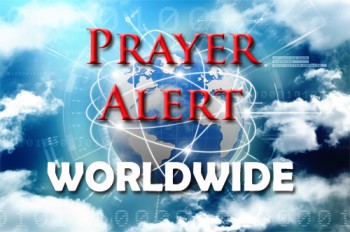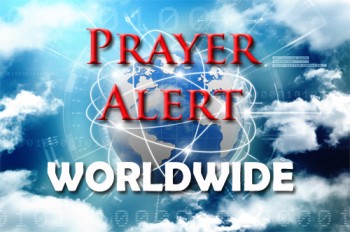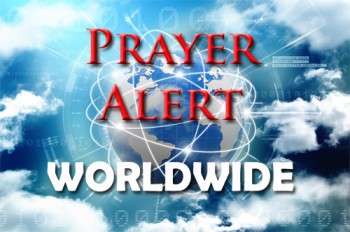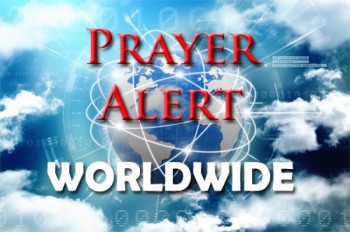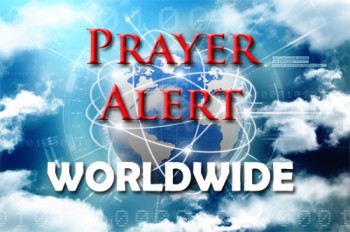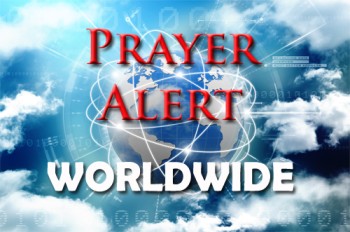Displaying items by tag: Asia
Pakistan: suicide attack kills five Chinese
On 26 March five Chinese nationals and a Pakistani driver were killed in a suicide attack near Besham city. They were en route from Islamabad to Dasu, where a Chinese company is building a hydroelectric dam. Four bodies have been recovered, while two remain unidentified due to burns. No group has claimed responsibility, and Chinese officials have not commented. Chinese investment in Pakistan has faced other threats from armed groups; in 2021, a bus bombing killed 13, including nine Chinese. This was the third attack in a week: on 18 March five separatists attacked a naval base in Balochistan, killing one soldier; all assailants were also killed. The Baloch Liberation Army claimed responsibility. On 20 March, another BLA attack in Gwadar port killed two soldiers and eight fighters. Gwadar is pivotal to the $62bn China-Pakistan Economic Corridor project.
Pakistan: three women convicted of ‘blasphemy’ killing
Three women have been convicted of the brutal murder of Safoora Bibi, a schoolteacher at an Islamic seminary in Dera Ismail Khan, in March 2022. The main suspect, Umra Aman, planned the attack with her two nieces, who were students at the school; they were allegedly prompted by a dream accusing Bibi of blasphemy. The killing has highlighted the pervasive issue of vigilante attacks in the country, fuelled by Pakistan’s controversial blasphemy laws. Despite the government's stated zero-tolerance policy, reluctance to repeal or reform these laws persists due to pressure from hard-line Islamist groups. Over 90 blasphemy-related killings have occurred in Pakistan in the past seven decades, with a significant rise in recent years.
India: PM accused of ‘crippling’ opposition party
Narendra Modi's government has been accused by the opposition Congress party of using the tax department to financially cripple them ahead of the upcoming elections in April and May, which Modi’s BJP party are favourites to win. Congress leader Sonia Gandhi claimed a systematic effort to starve the party of funds, stating that freezing their 2.1 billion rupee (£20 million) accounts is unprecedented and undemocratic. Her son Rahul said, ‘This is not the freezing of our bank accounts. It is the freezing of Indian democracy.’ Without access to funds, the party is unable to spend money on advertisements and publicity, paying party workers, and printing campaign materials, They have also pointed out that this action has been taken at a time when it had just been revealed that the BJP had benefited hugely from the electoral bonds scheme set up in 2018, which the supreme court declared illegal in February. The BJP and tax authorities have yet to respond.
Vietnam: president’s shock resignation
In what has been described as a ‘political earthquake’, Vietnam's president Vo Van Thuong resigned on 20 March, after allegations of corruption which have tarnished the Communist party's image. He was the youngest president in modern history, and regarded as a protégé of party chief Nguyen Phu Trong. Vice president Vo Thi Anh Xuan will act as interim president, but analysts think that a permanent candidate is unlikely to be selected soon. There will be a ‘very complicated’ succession process within the party that may last until the national congress in 2026, when the successor to Trong, Vietnam’s most powerful politician, will be determined. Concerns about his health mean the largely ceremonial position of the president is crucial. There are growing concerns among foreign investors about political instability in the country, which is a growing manufacturing hub and sits at the middle of the competition between China and the USA for global influence.
Hong Kong: new law draws widespread criticism
There has been a wave of criticism over Hong Kong's new security law, known as Article 23, unanimously passed by the pro-Beijing parliament on19 March. It allows closed-door trials, extended detention without charge, and penalties including life imprisonment. 81 lawmakers and public figures from across the world have said that it undermines due process and fair trial rights and violates Hong Kong's obligations under international human rights law. Hong Kong's chief executive has defended the law, claiming it will protect against foreign interference. However, critics see it as ‘one more step towards the system of mainland China’, and describe a ‘chilling effect’ on civil society. There are also concerns that the law could also be used to target HongKongers overseas, or their families and friends back home. The law's passage marks another blow to Hong Kong's autonomy, tightening China's grip on the city.
Israel / Gaza: first maritime aid shipment
A ship carrying humanitarian aid to Gaza has left Cyprus, marking the first maritime shipment of aid to the war-torn region. It aims to deliver 200 tons of food aid, equivalent to around 500,000 meals, directly to Gaza. The initiative comes amidst growing concerns over famine and malnutrition in the enclave, exacerbated by Israel's restrictions on aid distribution. However, concerns persist regarding the effectiveness of maritime and air-dropped aid compared to traditional deliveries by truck. The ongoing efforts are critical as Gaza faces acute shortages of essential supplies, with rising numbers of children dying from malnutrition and dehydration. Israel has been accused by humanitarian officials of arbitrary and contradictory criteria regarding access. In another development, the US senate majority leader has called for Benjamin Netanyahu to step down: see
Iraq: new church at historic site of Ur
A bell has chimed for the first time at Ibrahim Al-Khalil Church in Ur, heralding its upcoming inauguration and marking a significant step in the region's religious and cultural landscape. The church, part of a larger complex honouring Abraham, aims to revive pilgrimage to the historic site and encourage the return of Christians to Iraq. It symbolises interfaith dialogue and offers a space for worship, social gatherings, and cultural activities. Designed with elements reflecting spirituality and history, the church hopes to attract tourists and strengthen ties between Muslims, Christians, and other minorities. Amidst challenges of war and sectarian violence, its completion signifies a new chapter, emphasising dialogue and reconciliation. With optimism for Iraq's reconstruction, the project's completion signals hope for a peaceful future, echoing the Pope’s message of peace and outreach amidst regional tensions.
Kim Jong Un inspects North Korean troops and orders heightened war preparations
North Korean leader Kim Jong Un has called for enhanced military capabilities against the US and South Korea, responding to ongoing joint military exercises between the two nations. During a visit to a training base, Kim emphasised the need for “actual war drills'' to improve combat readiness, as reported by the Korean Central News Agency (KCNA). This stance follows the North Korean Defense Ministry's declaration of conducting “responsible military activities'' in reaction to what they perceive as invasion preparations through the South Korean-US drills. The annual South Korean-US exercises, which are computer-simulated and involve field training, are seen as defensive by the participating countries. North Korea, which has historically responded to these drills with missile tests, continues to showcase nuclear-capable weaponry. South Korea’s Defense Ministry spokesperson, Jeon Ha Gyu, affirmed that South Korea will robustly counter any North Korean provocations, criticising the North’s portrayal of the drills as invasion rehearsals. This escalation occurs amidst a series of North Korean missile tests designed to target South Korea and the US mainland. Observers expect further tensions and provocative actions from North Korea, especially in the context of upcoming major elections in the US and South Korea.
Floggings, fines and confiscated cars — how Iran has intensified its ‘morality war’
Iran's morality police have escalated their enforcement of Islamic dress codes, leading to severe punishments for women, including car confiscations, floggings, and fines, reports Amnesty International. This crackdown follows protests ignited by the death of Mahsa Amini, who was detained for not wearing a hijab. Amnesty's findings reveal that tens of thousands of women have had their cars seized for defying veiling laws, with some also facing flogging, prison, or mandatory 'morality' classes. One woman, Roya Heshmati, described being flogged in front of a judge, likening it to "medieval torture." Many women recounted being pursued by police and stranded far from home after their vehicles were impounded. Release of the vehicles required payment of fees and commitments to comply with veiling laws. Surveillance and public reporting have intensified, with even men mistaken for women due to long hair facing questioning. The recent protests, under the slogan "Woman, Life, Freedom," challenged Iran's regime, leading to proposed legislation increasing penalties for dress code violations. Amnesty International's Deputy Middle East Director, Dina Eltahawy, noted the increased policing aims to suppress resistance, causing distress and disrupting lives. The report highlights the harsh realities of compulsory veiling and the Iranian government's efforts to reinforce it amidst growing public dissent.
Gaza: Israel accused of blocking food aid, fire on crowds
UN officials have accused Israel of systematically blocking aid from reaching desperate Palestinians in Gaza, warning that a quarter of the population is ‘one step away from famine’. On 29 February over a hundred died and 750 were wounded when Israeli soldiers opened fire on crowds waiting for food aid. The conflict has now resulted in over 30,000 Palestinian casualties. Much of Gaza has been devastated. The officials highlighted the urgent need for food aid, with one in six children under two in northern Gaza suffering from acute malnutrition. However, delivering aid is hampered by numerous obstacles, including crossing closures, restrictions on movement, and attacks on aid convoys. In the event of a ceasefire, the World Food Programme is ready to swiftly expand operations; however, US hopes of an imminent truce seem very slim.
